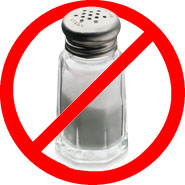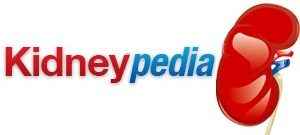
Chronic renal failure, also known as chronic kidney disease, is a loss of kidney (renal) function that becomes worse over time. There are many possible causes of chronic renal failure, of which the two most common are high blood pressure and diabetes.
The function of the kidneys is to filter wastes and excess water from the blood and expel them from the body in the form of urine. Loss of renal function leads to a buildup of waste products in the blood and, in the end stage of the disease, is potentially fatal. Chronic renal failure is irreversible. Damage done to the kidneys cannot be repaired. Treatment in the earlier stages of the disease therefore consists of trying to arrest the damage. If it’s stopped before it progresses to the final stages, life and normal health can be maintained.
Otherwise, the only treatments that will work are renal replacement therapy (dialysis or a kidney transplant). In addition to this, chronic renal failure increases the risk of cardiovascular disease.
Treatment of early-
dietary, although medications that reduce blood pressure may be useful as well.
Diet For High Blood Pressure
Kidney damage is one of the two chief complications of high blood pressure, the other being increased risk of cardiovascular diseases. Treatment of high blood pressure includes the following dietary and other lifestyle recommendations.
- Maintain body weight that is normal for adults
- Reduce sodium intake to no more than 2400 mg per day (approximately 6 grams of salt)
- Engage in regular vigorous aerobic exercise (e.g. brisk walking for at least half an hour per day)
- Limit alcohol consumption to no more than three drinks a day (men) or two drinks a day (women)
- Eat plenty of fruits and vegetables (about five servings per day)
Diet For Diabetes
The other major cause of chronic renal failure is diabetes. There are two types of diabetes, type 1 or insulin-
Reducing sodium is less important for treatment of diabetes (unless the patient also suffers from high blood pressure), but a diet high in dietary fiber and low in fat is also recommended. A vegan diet (devoid of animal products, including meat, fish, eggs, and dairy) that is high in fruits and vegetables has been shown to be effective in both prevention and control of diabetes.
Carbohydrate intake is a matter of medical controversy in regard to diabetes. Standard recommendation is a high carbohydrate diet. However, some experts recommend a very low carbohydrate diet instead as a way to manage blood sugar.
Fluid Intake
In the early stages of chronic renal failure, it’s very important to drink plenty of fluids, as this is necessary for proper kidney functioning and prevention of kidney stones. Kidney stones being a third cause of chronic renal failure, this is important for treating the disease.
However, once the disease has progressed to the point of requiring dialysis, different dietary recommendations (including for fluid intake)
become necessary to facilitate the treatment. In particular, excess fluid intake can be a problem when the kidneys are not functioning well enough to remove water from the system, and when kidney function must be replaced by artificial methods.
